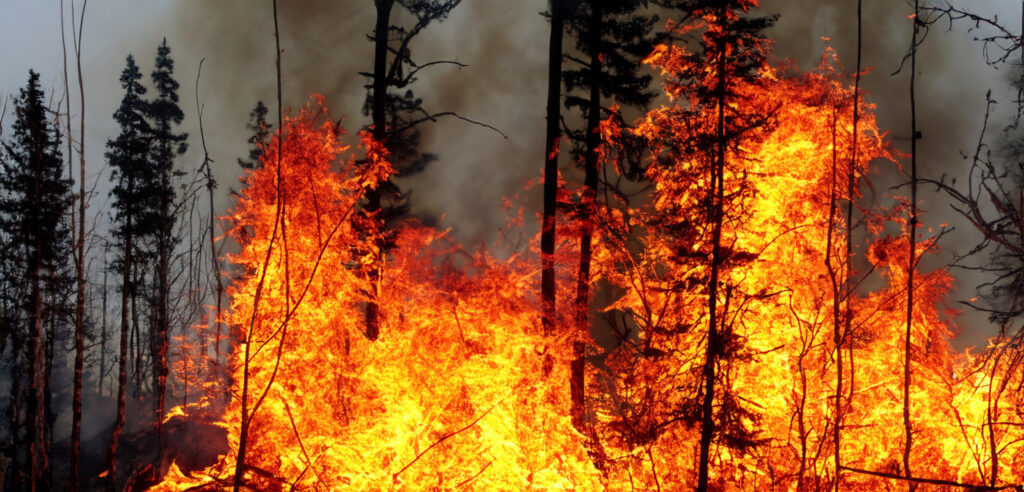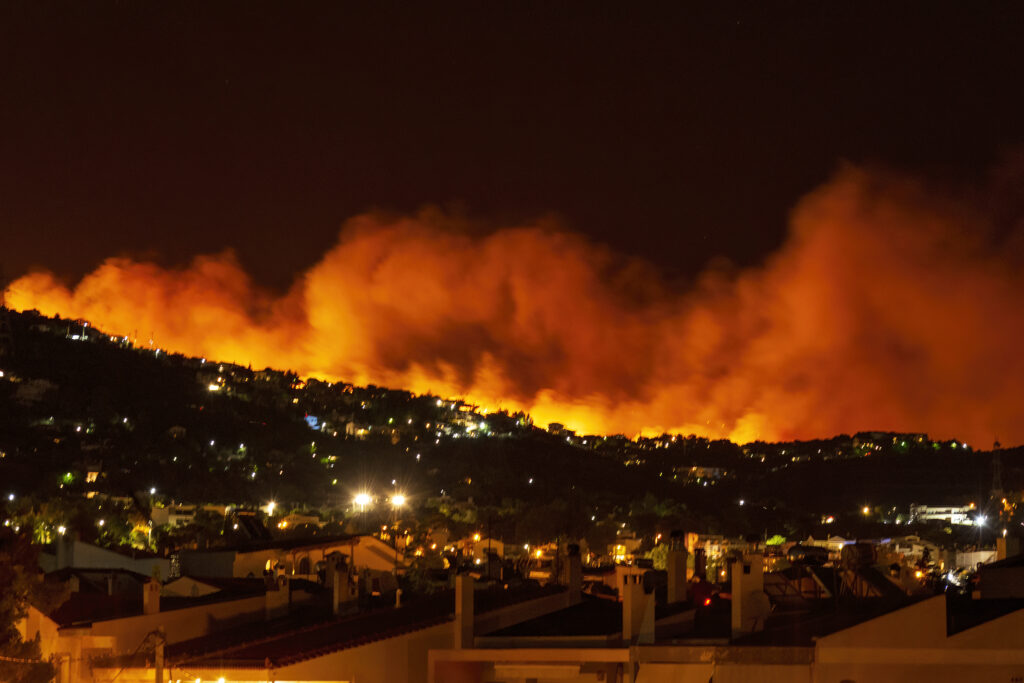
The International Code Council Supports Federal Government Leaders in Advancing Building Codes for Wildfire Prevention and Disaster Mitigation
The USFA’s National Fire Strategy underscores the critical role of codes and standards in safeguarding citizens against fire hazards like wildfires.
The summer months are when many wildfires occur due to the combination of high temperatures, dry conditions and increased human activity. During this time, it is crucial to ensure that applicable building codes and best practices are followed to mitigate the risk of wildfires and to lessen their potential impact on communities.
Adopting and implementing modern building codes is essential for wildfire prevention and disaster mitigation, as these codes establish the standards necessary to ensure buildings can withstand natural disasters.
The International Code Council plays a key role in this effort by developing codes and standards through a consensus-driven process that involves experts from various fields, ensuring the codes are both practical and based on the latest research.
The Code Council’s International Codes® (I-Codes), such as the International Wildland-Urban Interface Code® (IWUIC), are designed to enhance the safety and resilience of communities across the globe. Implementing these codes helps protect lives, property and natural resources, making communities more resilient to the threat of wildfires.

International Wildland-Urban Interface Code
The IWUIC establishes requirements for how land should be used and how buildings should be constructed in designated Wildland Urban Interface (WUI) areas. These regulations include specific guidelines for land use planning, building design, materials selection, and vegetation management to mitigate wildfire risks.
By integrating the latest research and best practices, the IWUIC helps communities enhance their resilience against wildfires, protecting lives and properties while preserving natural ecosystems.
Learn more about the Code Council’s IWUIC here.
Federal Government Support for Building Code Advancement
Federal government support for building code advancement is crucial for enhancing fire and life safety measures in communities, particularly in WUI areas. While state and local governments are primarily responsible for promoting and enforcing current codes and standards, federal assistance can play a significant role in incentivizing jurisdictions and providing funding for adoption, inspection and implementation efforts.
By investing in these initiatives, the federal government can bolster community resilience and reduce the risks associated with structure fires and wildfires. For instance, the U.S. Fire Administration (USFA) recently initiated a pilot study aimed at evaluating the effectiveness of adopting and implementing building and fire code provisions. This study seeks to provide valuable insights into the cost-effectiveness of these measures and inform future studies, ultimately supporting policy decisions at the state, local, tribal and territorial (SLTT) levels.
The U.S. General Services Administration (GSA) recently revised its construction standards to once again include the IWUIC, which aligns with federal mandates requiring all government buildings to adhere to IWUIC guidelines. This incorporation is part of a broader effort to mitigate wildfire risks and ensure that federal infrastructure is better equipped to withstand natural disasters, reflecting a growing emphasis on sustainability and disaster preparedness in construction projects.

USFA’s National Fire Strategy
The USFA’s National Fire Strategy underscores the critical role of codes and standards in safeguarding citizens against fire hazards like wildfires. The strategy emphasizes the importance of implementing and enforcing up-to-date codes and standards, particularly in WUI areas and in underserved populations in rural-urban regions. It aims to ensure that all individuals have access to affordable housing that is protected against fires.
The strategy aligns with the findings of the 2019 National Institute for Building Sciences (NIBS) report, which found that model building codes, including the I-Codes, improve building resilience to natural disasters and save $11 for every $1 invested. The report also found that retrofitting structures to the IWUIC could provide as much as $8 in mitigation benefits for each $1 invested.
Some of the recommendations outlined in the study to improve these efforts include:
- Promote the adoption, implementation and enforcement of fire and building codes/standards as created by national consensus processes
- Provide a database of all jurisdictions that have adopted the minimum building and fire codes
- Provide a database and repository of information on the jurisdictions that have adopted codes and standards above the minimum
- Establish a workgroup to identify specific areas of research gaps related to, but not limited to:
- Energy Storage Systems
- EV and modern vehicle fuel loads in modern parking garages. Required fire protection and suppression fire response
- Residential construction: Emerging construction products
- Energy efficient homes, specific to insulation and impact on fire performance
- Net Zero homes
- The evaluation of the applicability of current Test Standards.
- Automated Storage Systems
- Plastic building materials
Support Through the International Code Council
To support the efforts of the federal government, the Code Council is actively advocating for the adoption and implementation of fire and building codes and standards. The Code Council recognizes the importance of regularly updating the I-Codes every three years to incorporate industry advancements and new research findings, especially those related to structural fires and wildfires in the WUI.
Learn more about the Code Council’s efforts to support the WUI here.







